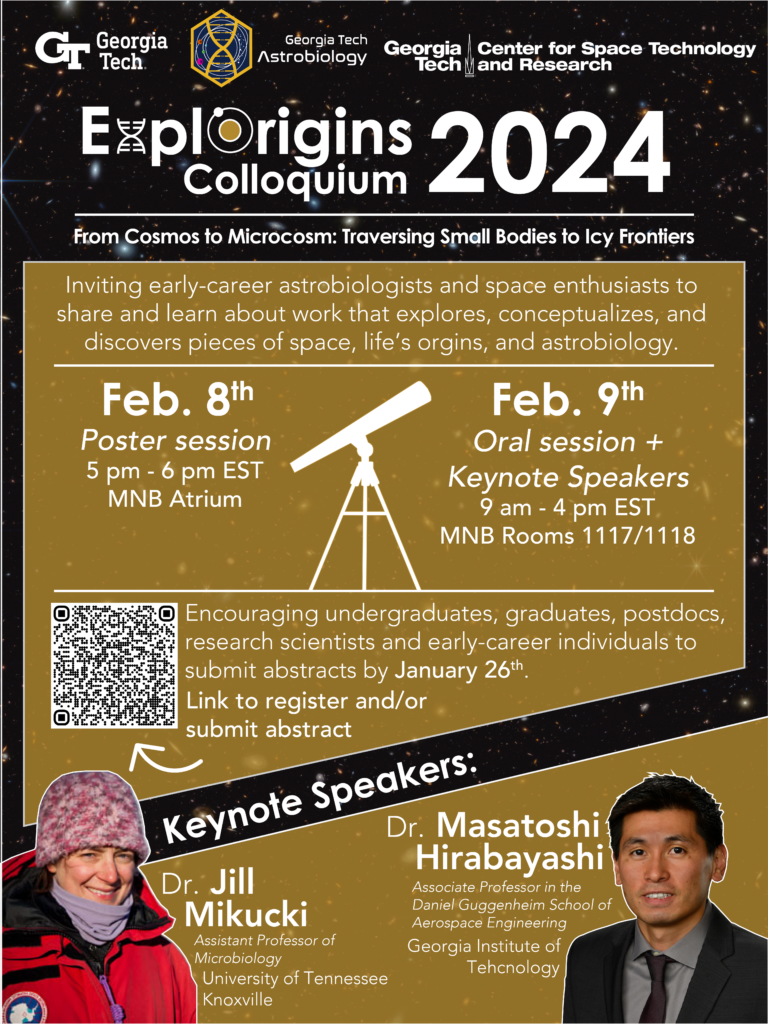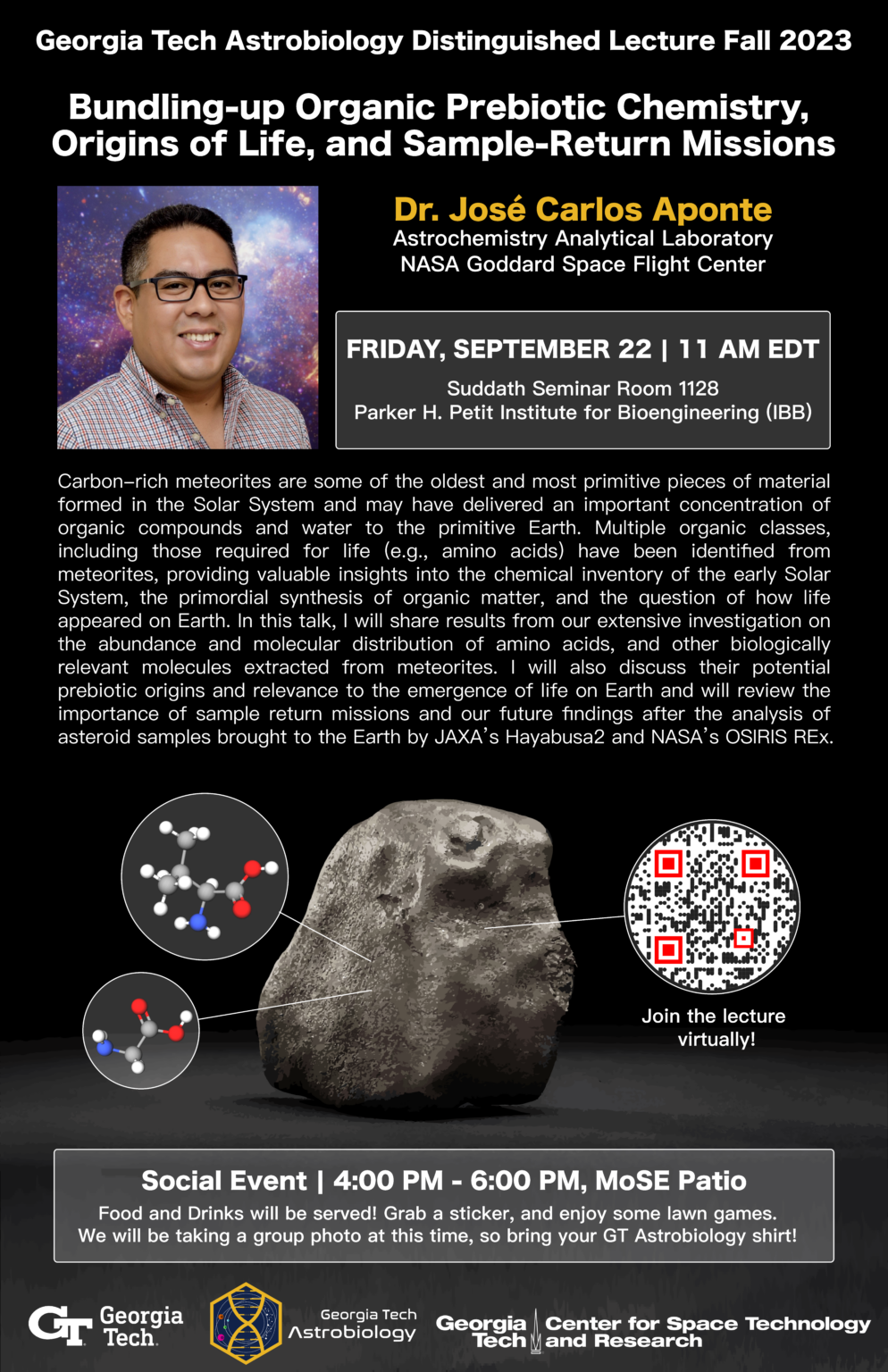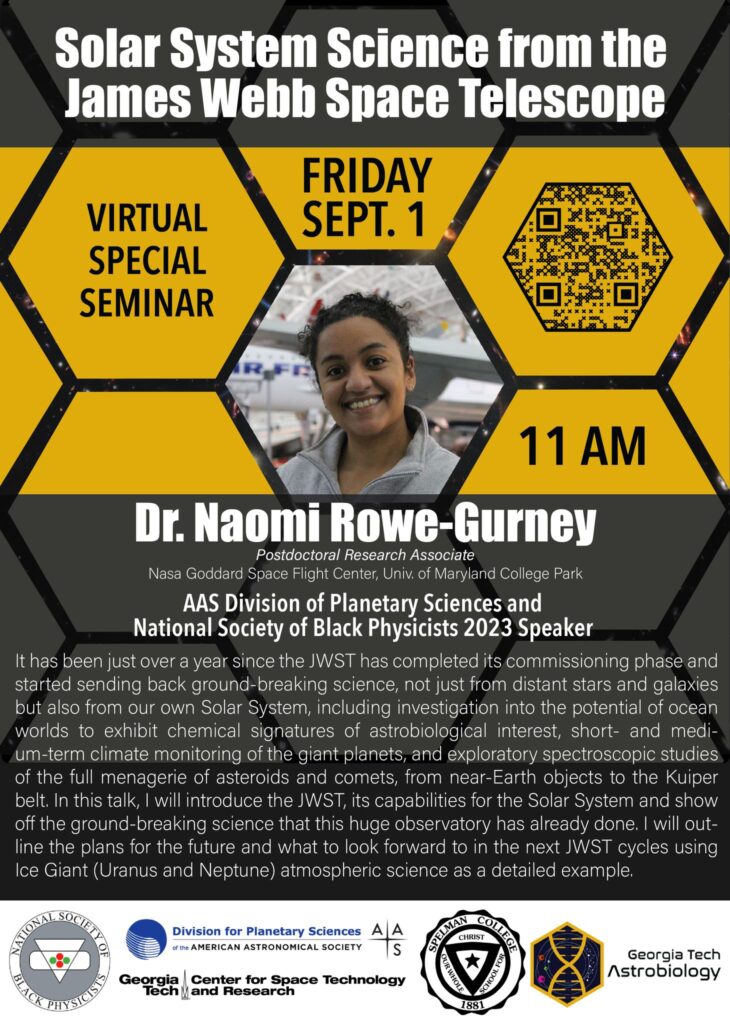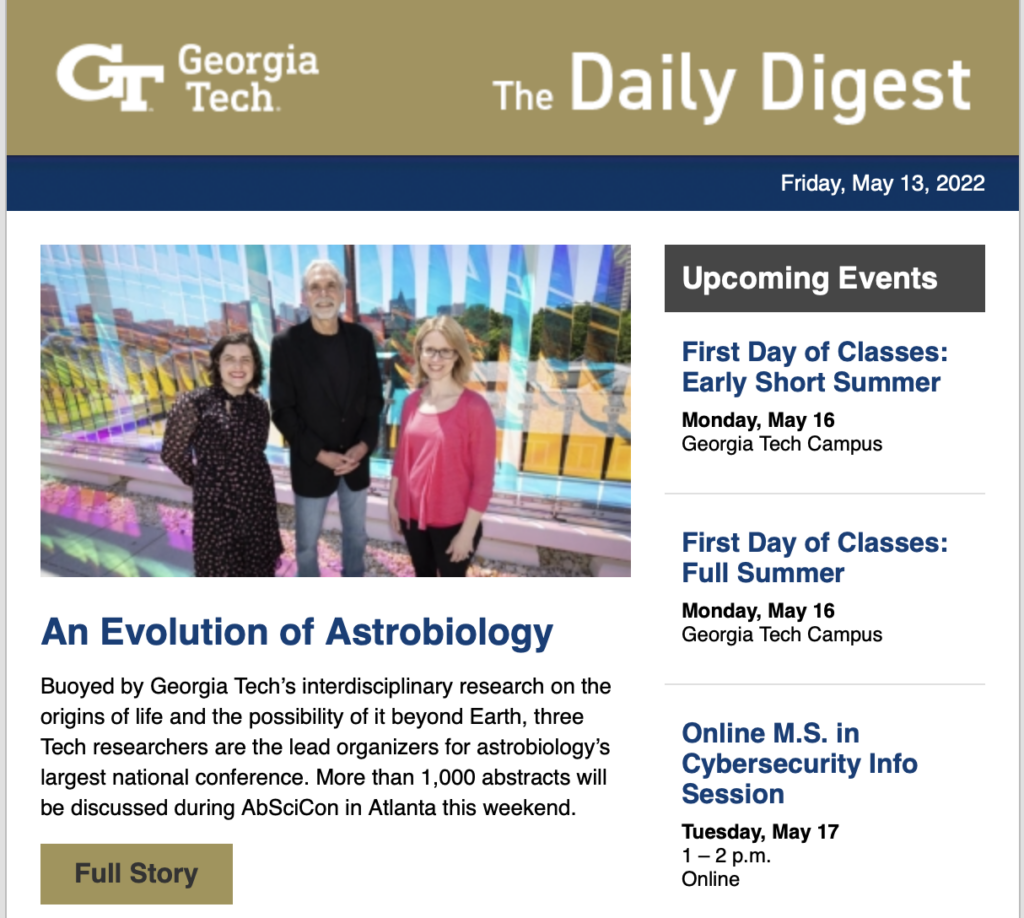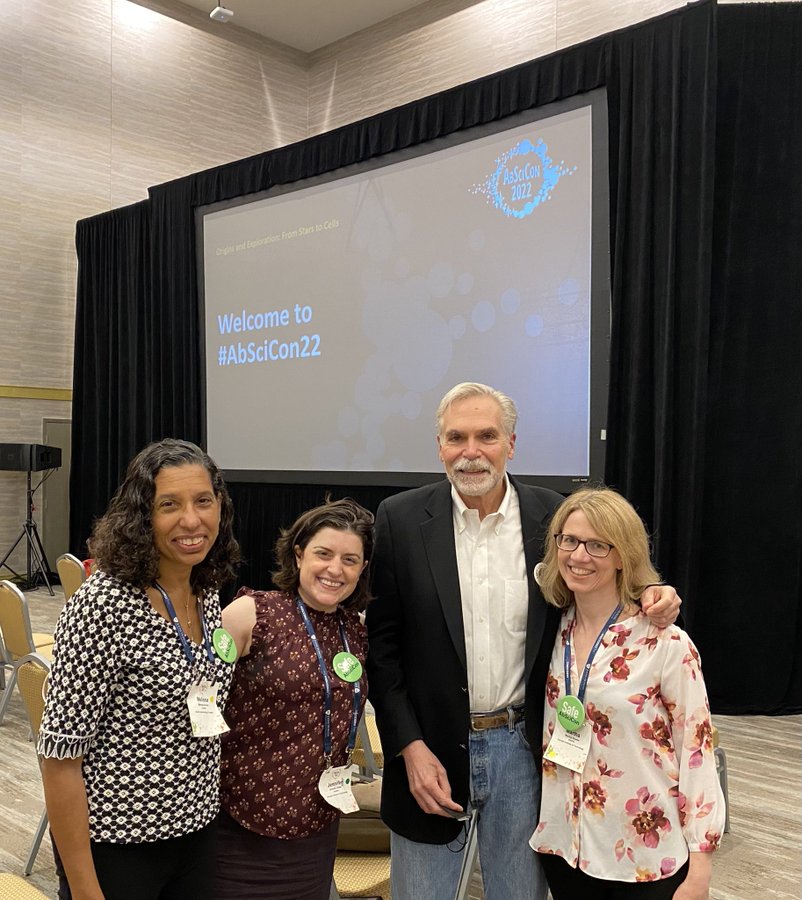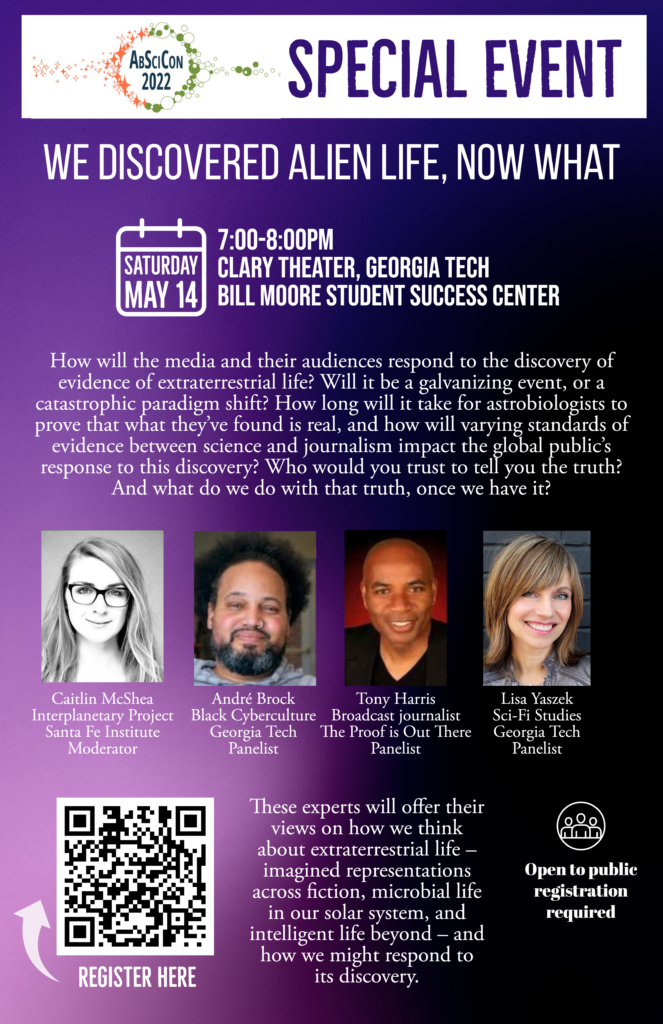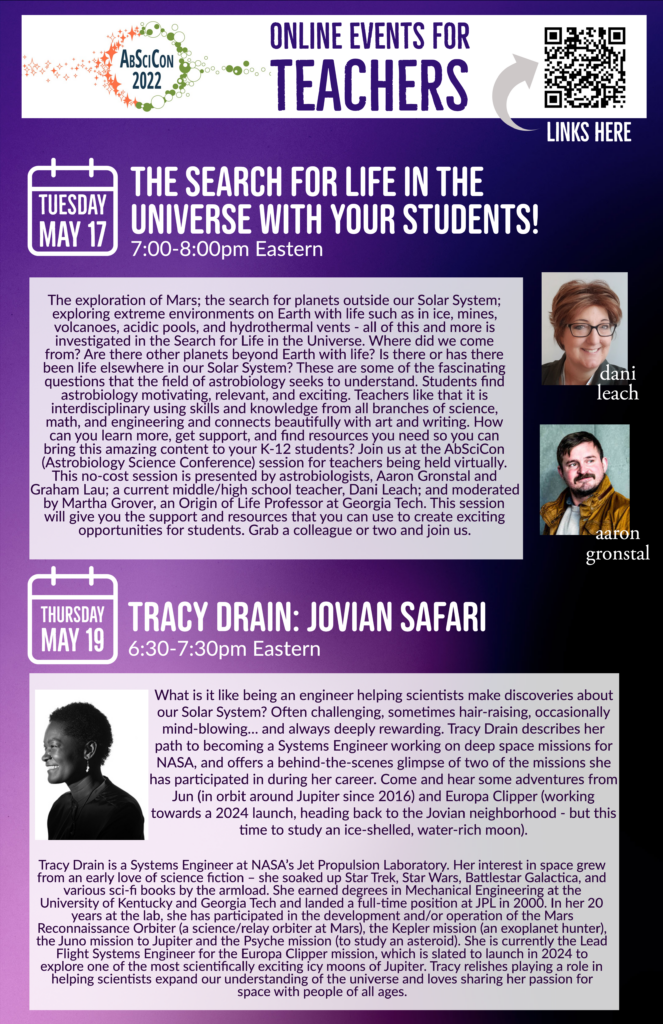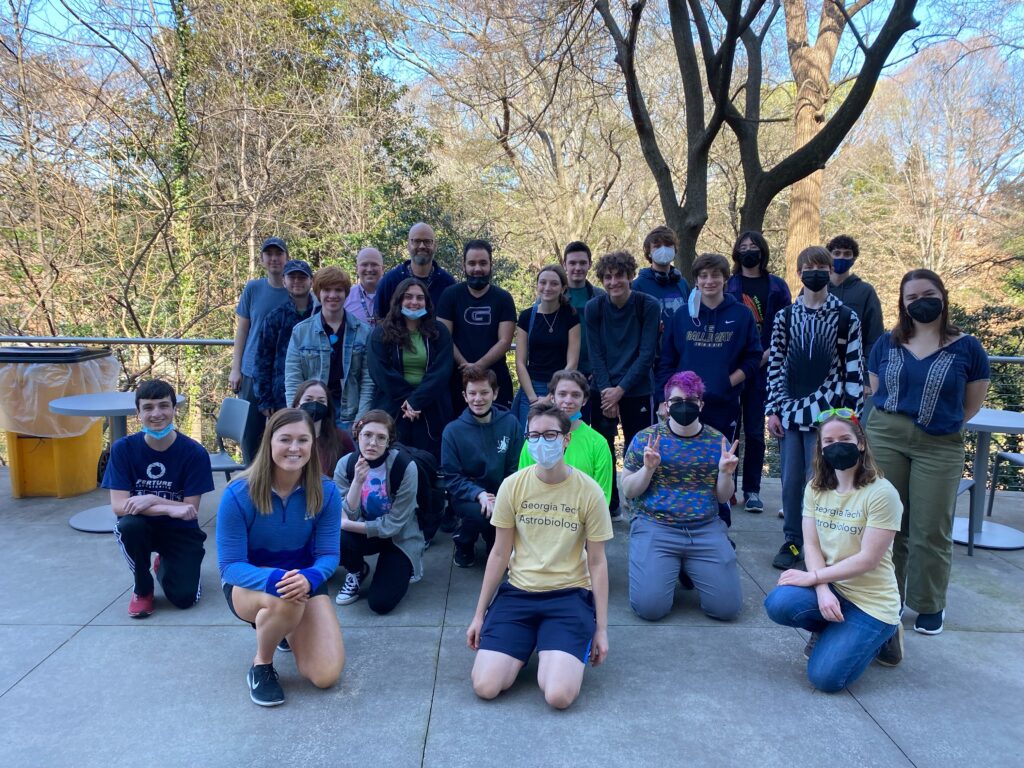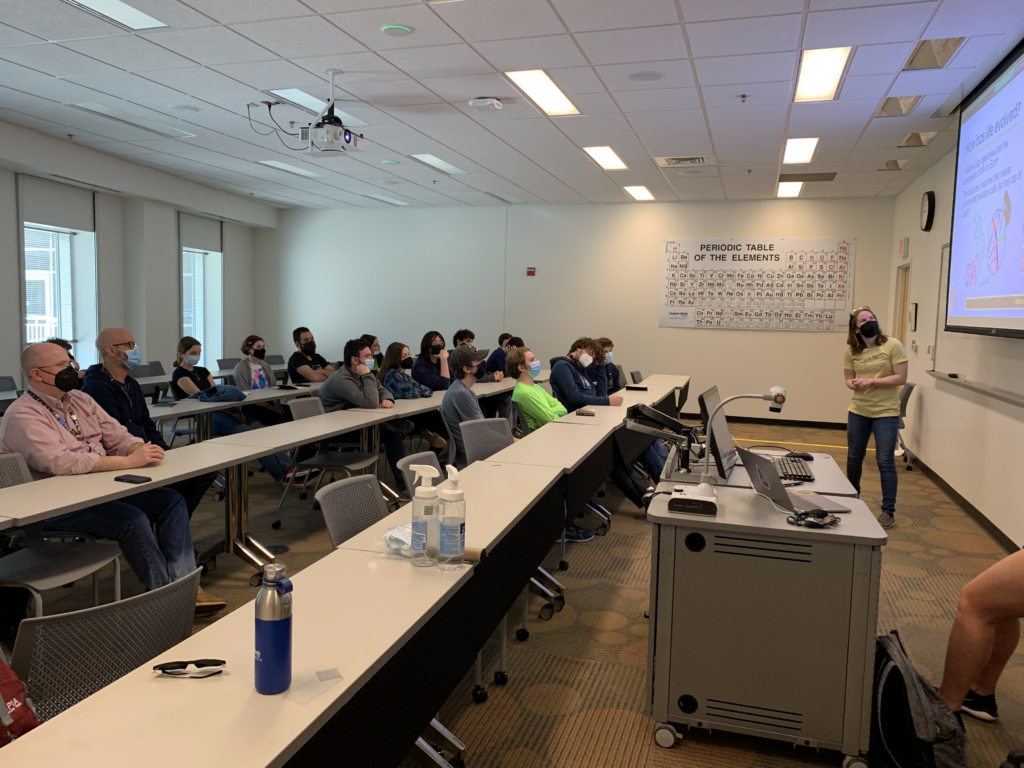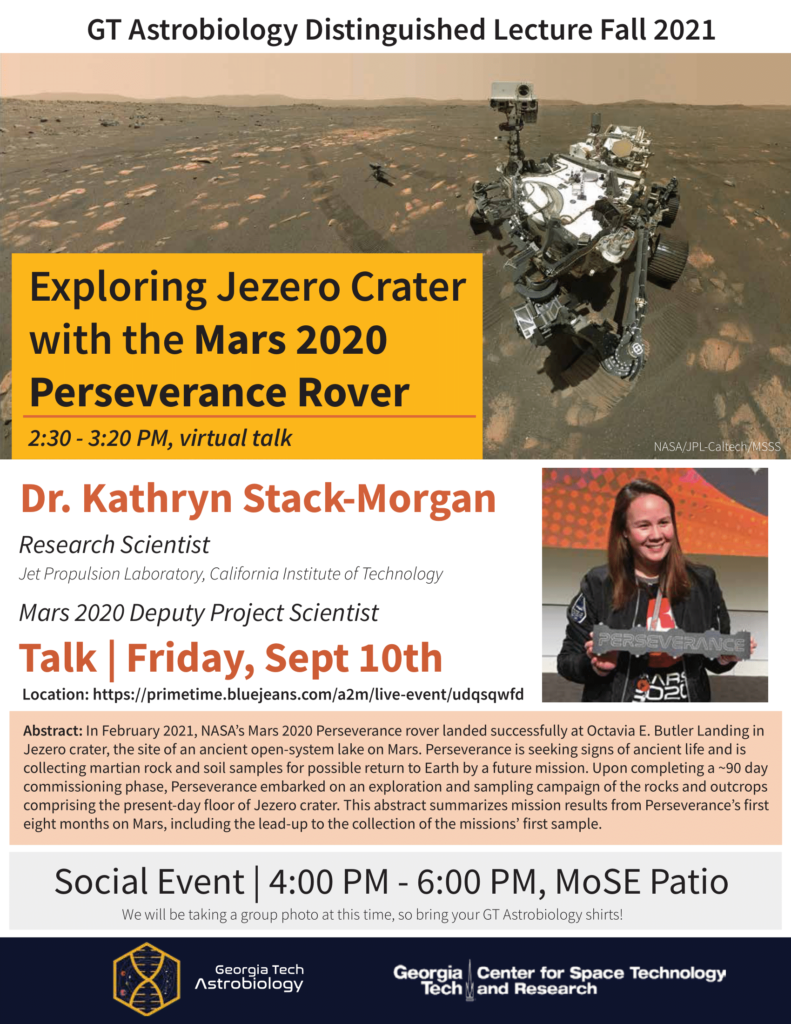We’re excited to host Dr. Indujaa Ganesh, a new Assistant Professor at Georgia Tech as our distinguished lecturer. Dr. Ganesh uses radar and radiometry to study the surface and interior of other planets, including Venus. She is a current Science Team member of VenSAR, scheduled to fly on the EnVision mission to Venus. Dr. Ganesh’s work focuses on the development of radar instruments like that one as well as the impact of atmospheric conditions on volcanic processes, granular flow transport, and deposit properties.
Title: A long-wavelength look at Earth’s neighbor
Presenter: Dr. Indujaa Ganesh, Assistant Professor, Georgia Tech
Date/Time: Friday, October 18, 11am
Location: Suddath Seminar Room, Parker H. Petit Institute for Bioengineering and Bioscience (IBB) Room 1228
Livestream will be available on the GT Astrobiology YouTube Channel: https://www.youtube.com/@georgiatechastrobiology
In the afternoon, there will be a social event with lawn games, food and refreshments beginning at 4:00 PM, located at the Molecular Science and Engineering (MoSE) outdoor patio, ground floor. Please RSVP for the social event, so we can make sure to order enough food! We will also be taking a group photo at this time, so bring your GT Astrobiology shirts.
Social Event RSVP: https://docs.google.com/forms/d/e/1FAIpQLSc8y9QdVXHWAzR-otlldvpsZOyoFzSEkeOJ0avwJl9jmKlw9g/viewform
Please see the below flyer for more info. Hope to see you at both events!
Organized by Astrobiology Fellows 2024: Abby, Alivia, Chloe, and Jelis
THE FLYER BELOW HAS NOT YET BEEN UPDATED WITH THE NEW DATE!


